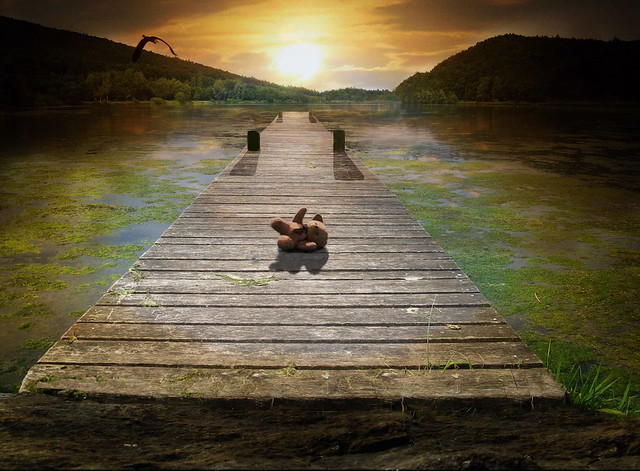Every year during Banned Books week,we free-spirited authors call out parents and narrow-minded authorities for challenging controversial books. Some of these adults have petitioned to remove The Hunger Games from their school districts, condemning the R-rated violence in the books that barely made it into the movies with a PG-13 label. In 2011, according to the American Library Association, the charges against the book are as follows: "anti-ethnic; anti-family; insensitivity; offensive language; occult/satanic; violence.Other bloggers have pointed out that the loyal Katniss is the last person to represent anti-family, that there are ethnic differences in the books and movies and the books actually speak against violence; but the charges of being "occult/satanic" interest me since the last book series that was called satanic was Harry Potter. As we Harry Potter fans know, no one can get their hands on the Potions ingredients or the wands needed to cast spells from the books, and Harry certainly doesn't worship the devil or sanction prejudice.
To make things different from typical attacks on censorship, since I highly respect my mother and she would dislike the books, and since I can't find any articles that explain the charges of occultism, I'm going to look at the parents' point of view to figure out why they see the Hunger Games as satanic before breaking down their argument into manageable bits.
There is No God in Panem
Source: http://farm8.staticflickr.com/7142/6608549961_ae24fb380f_n.jpg
When I was Googling articles to use for reference points, the My Hunger Games website mentioned that there's no religion in any of the districts, no God or vengeful deity save the chance that one district's champion will win. President Snow even mentions in the movies that the Games only provide hope and nothing more for the Districts, to keep them from rebelling. Katniss prays to her mentor Haymitch for support in the arena rather than an omniscient and omnipotent God; no spirituality can save her from the aftereffects of war. Children may find the idea of being alone with their minds troubling in a dark fictional novel where parents can go into depression and former friends get their tongues cut out. Katniss later becomes a Christ-like war figure for the rebellion and a symbol of hope against her will; no God guides her into making the right decisions.
Suzanne Collins's choice to not incorporate religion was a practical one because religion remains a hot button in mainstream literature. If there is even a revised version of Christianity in science fiction, like for Ted Sturgeon or Madeline L'Engle, people will complain. Most dystopic or bad future novels for that reason do not contain an ounce of Christianity or Buddhism; bad futures often show dependence on science and reason, as if the Age of Enlightenment reawakened with the creation of flying hovercrafts and fiery dresses.
People Would Pay to See Children Die
Source: http://farm4.staticflickr.com/3001/2779281782_749818743d_z.jpg?zz=1
The other satanic implication seems to be that people in the Capitol enjoy watching 24 children fight to the death, sacrificing them for viewers' pleasure. Indeed, the dystopia reeks of a return to primal instinct and wealthy mob tyranny. Katniss has to listen to her Stylists and dress as they say; she's lucky that her Stylist doesn't have her parade naked in coal dust for the chariot ride and the wealthier Districts groom their children as charismatic killers. The victims cannot complain because if they complain then they get no sponsors and thus no food or medicine that can help them live one more day in the Arena. Parents could have been insulted by the implication that an affluent, decent-minded crowd would cheer to see real deaths, given that most ordinary people like to watch reality TV and fall for tragic love stories. The line between reality TV and reality cruelty becomes dreadfully thin in real life; the Hunger Games slashes that line into mediocre ribbons.
To add insult to injury regarding humanity's lack of values, the sacrifice of children becomes a running theme even with the rebellion; District Thirteen --SPOILERS-- also calls for the death of children to pay for the many deaths broadcast on the screen. The call for violence is thus implicit in human nature and only vehement protest can stop it. Parents could be concerned that Suzanne Collins broadcasts the lack of hope for humanity, that any of us in the affluent US would become one of a bloodthirsty mob. We want to believe that we are good people, and knowing that we're wired for violence could be a problem when trying to instill values in our children.
Here is the reality check: we live in a world where children in Uganda are brainwashed into becoming killing machines and intellectual teenagers become terrorists. In America teenagers videotape public beatings and post them on YouTube just to get top votes. An offensive video two weeks ago led to the deaths of innocent American ambassadors. We can pretend that we are peace-loving rational creatures, but there will always be an irrational call for the mob's tyranny and to lay destruction in the streets. Suzanne Collins merely showed humanity at its potential worst, where the mob manages the money and laughs at the innocent or not-so innocent children's plights.
Our generation is lucky that lynch mobs are condemned and that we push for peace rather than war in modern times. Just because humanity has blood thirst does not mean that we can rise above war and harsh reality; Katniss herself manages to end the cycle of violence with one well-placed arrow. She comments on the sordid state of affairs in Book Three, how war and battles always call for unnecessary and devastating bloodshed where everyone suffers. We have the choice to avoid the call for violence, and to promote peace; the 1960s war protests happened for a reason, as do shows like Sesame Street where people learn to get along. As long as we continue to fight ourselves, no matter how hard the battle becomes, we can remain peaceful, good people. We can learn when the time comes for change and rebellion and when to question authority, like Katniss; to know evil, however, we have to read about it. The Hunger Games does not promote child sacrifices or the lack of God; it shows the prices of accepting a world with those aspects. I will never cheer at seeing real children die on television, and I will accept hope from any spiritual source.
What do you think? Post your comments below, and I will give the person with the most informative and organized response one of my original comic strips; the comic in question is this one about free speech. Can't wait to hear what you say!
Source: http://farm8.staticflickr.com/7012/6746123973_b153052f3c.jpg



